articles
China Elevator Stories
Chinese Cabbage, Spring Onions, and Live Frogs
Chinese markets offer a variety of produce.
28/10/2025

Ruth Silbermayr
Author
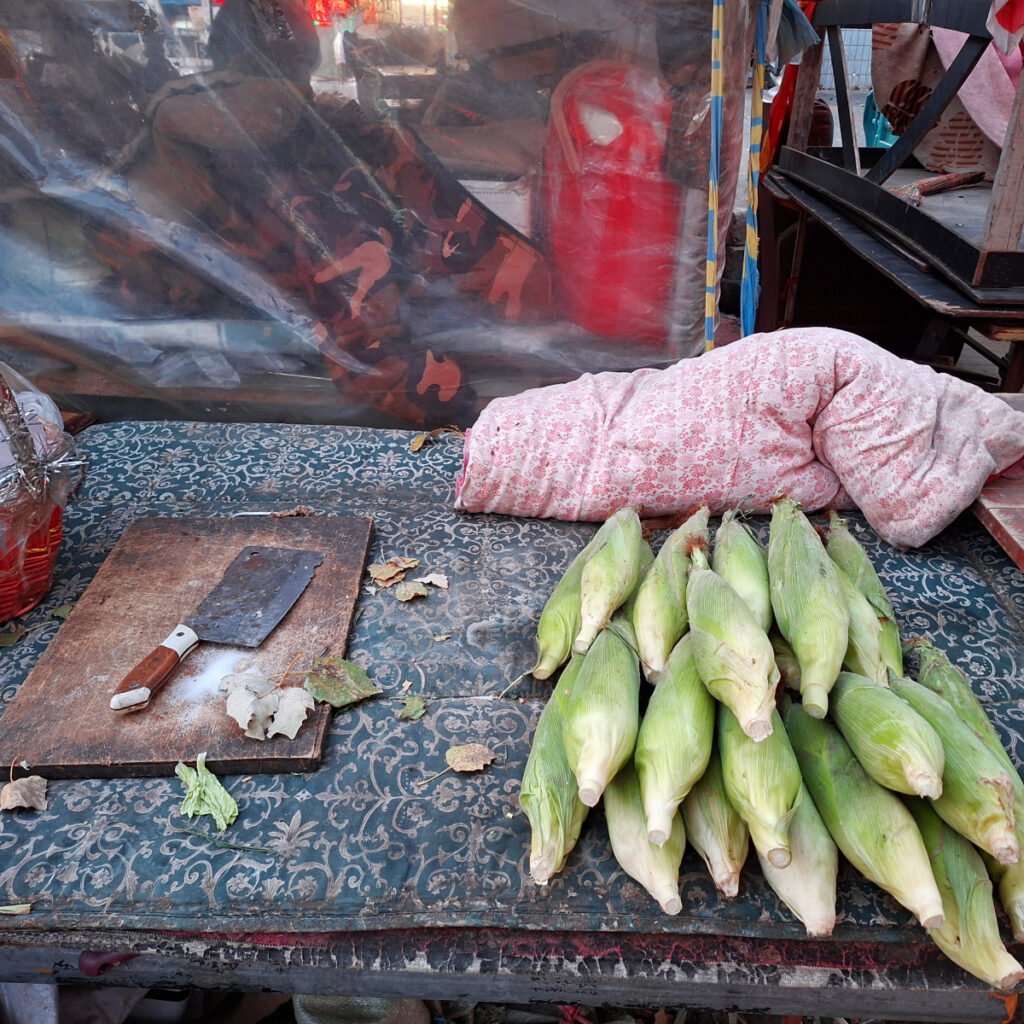
One of the things I enjoy most about China is the fact that there are still plenty of markets in cities, unlike in Austria, where markets are fewer and much rarer.
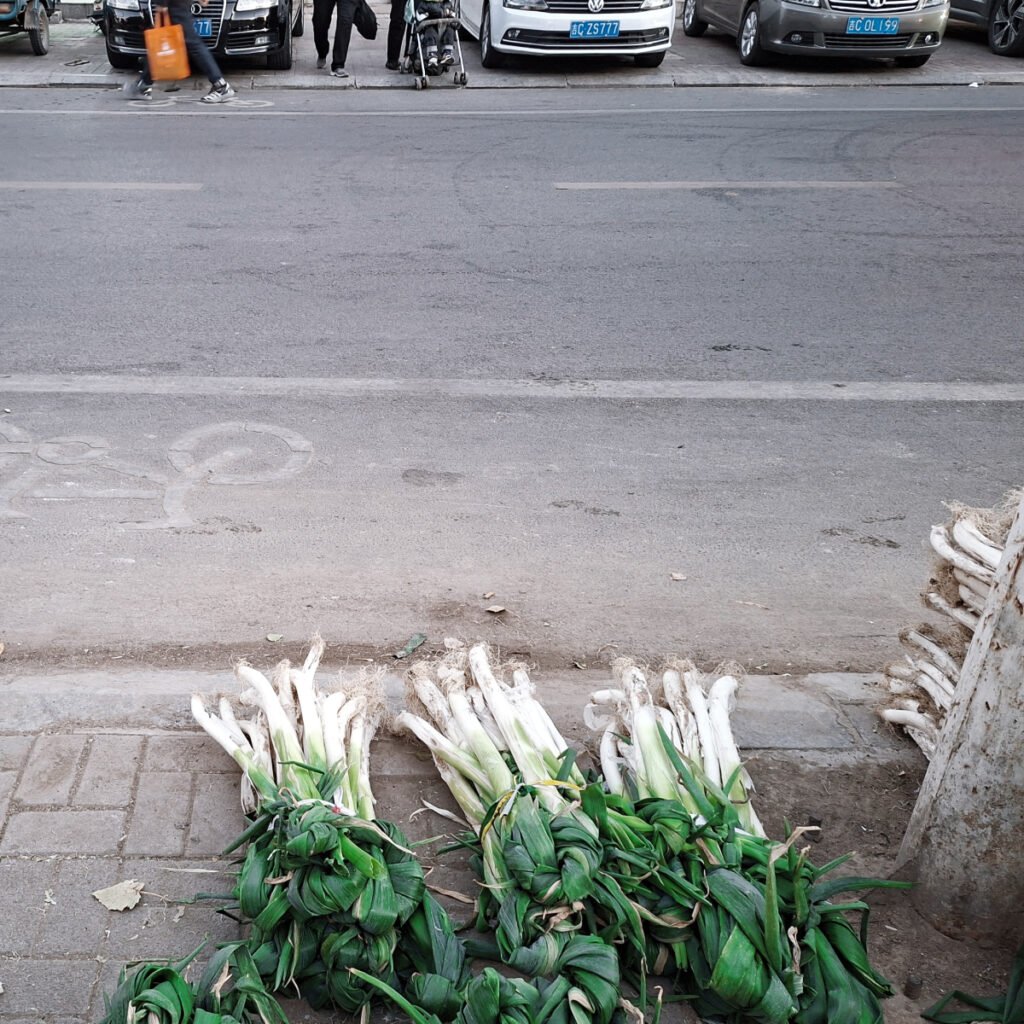
The freshness of the produce varies depending on the market and the vendor. At a single market, you can find stalls selling fresh, high-quality local produce alongside ones with vegetables that don’t look great at all.
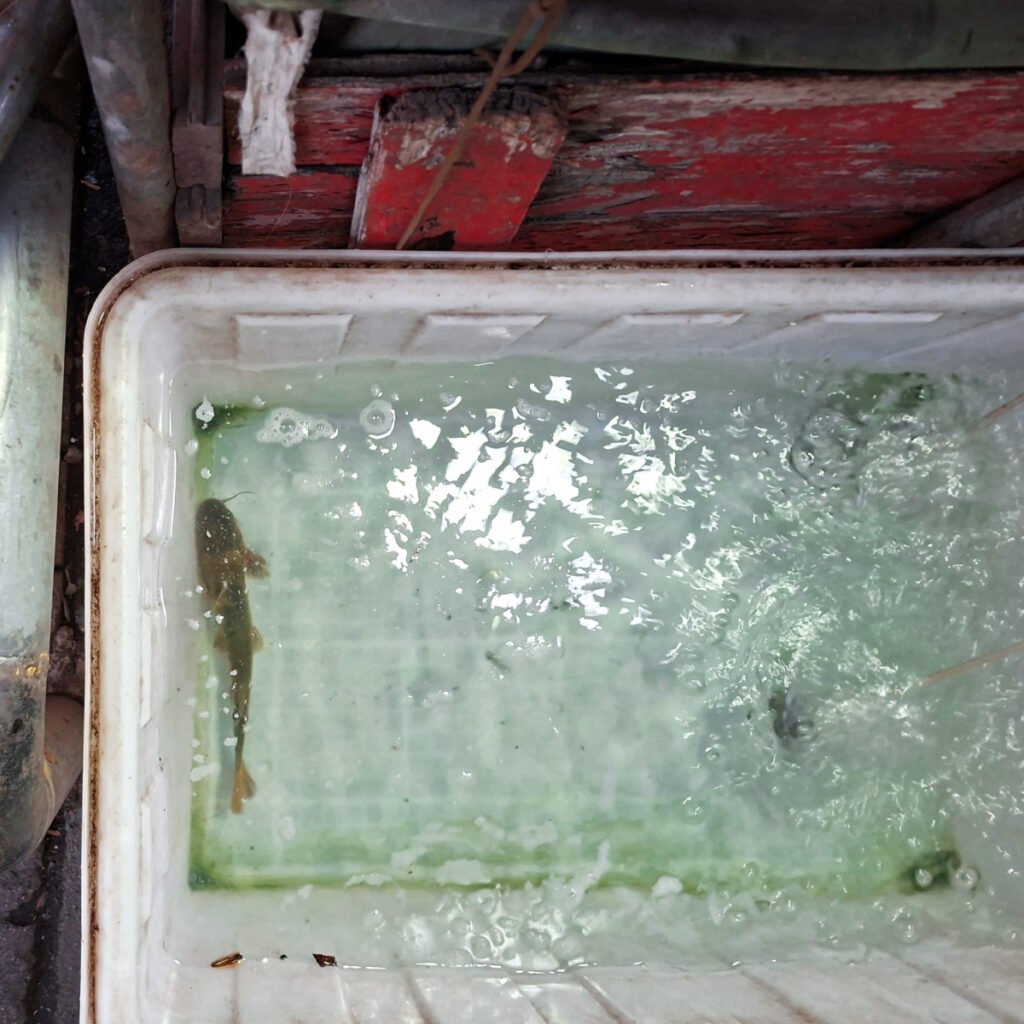
Many markets also sell things you wouldn’t usually find at European markets — such as frogs (usually live ones, though the market near my apartment has two dead frogs on display so people can see what they look like), live fish, and live crabs.
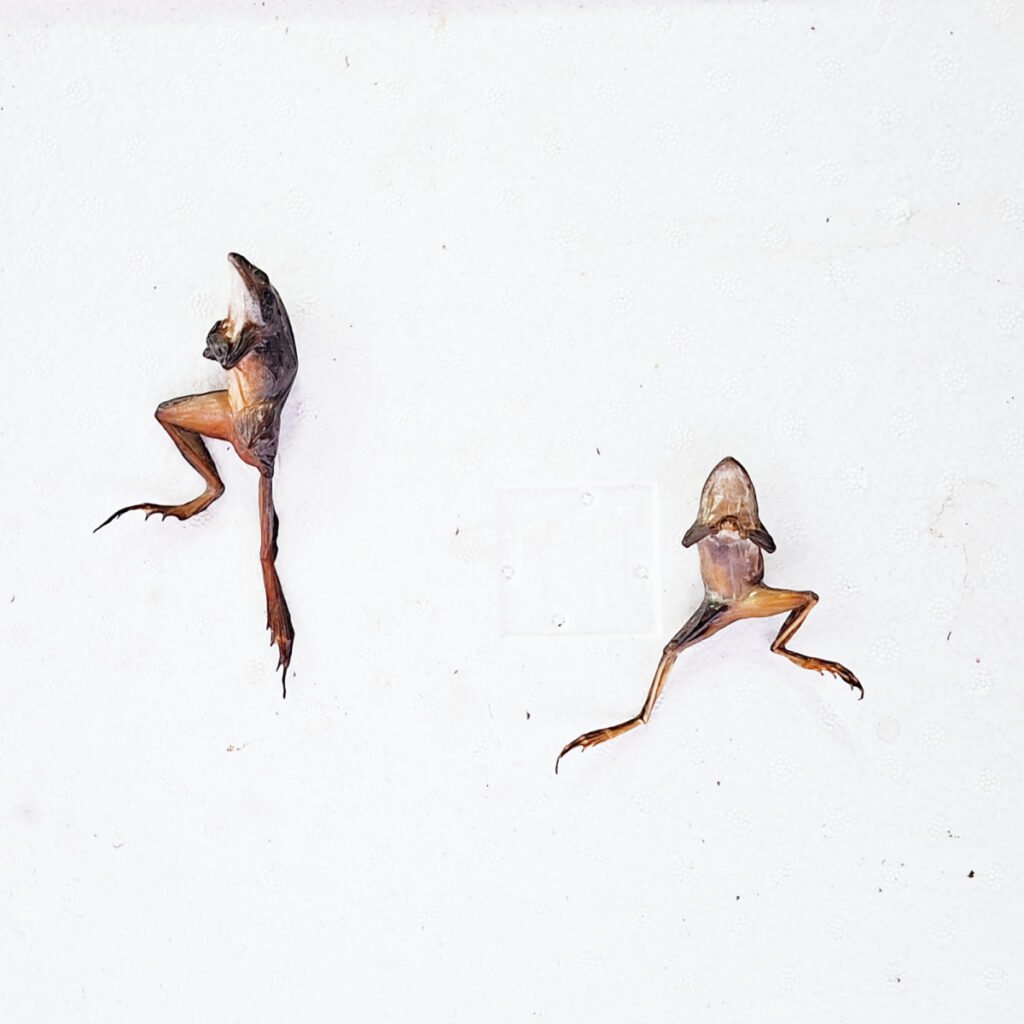
Tofu is also commonly sold at these markets. In Northeast China, Frozen Tofu (冻豆腐) is a winter specialty, since it stays frozen even when vendors aren’t actively selling it during the day due to the cold temperatures.
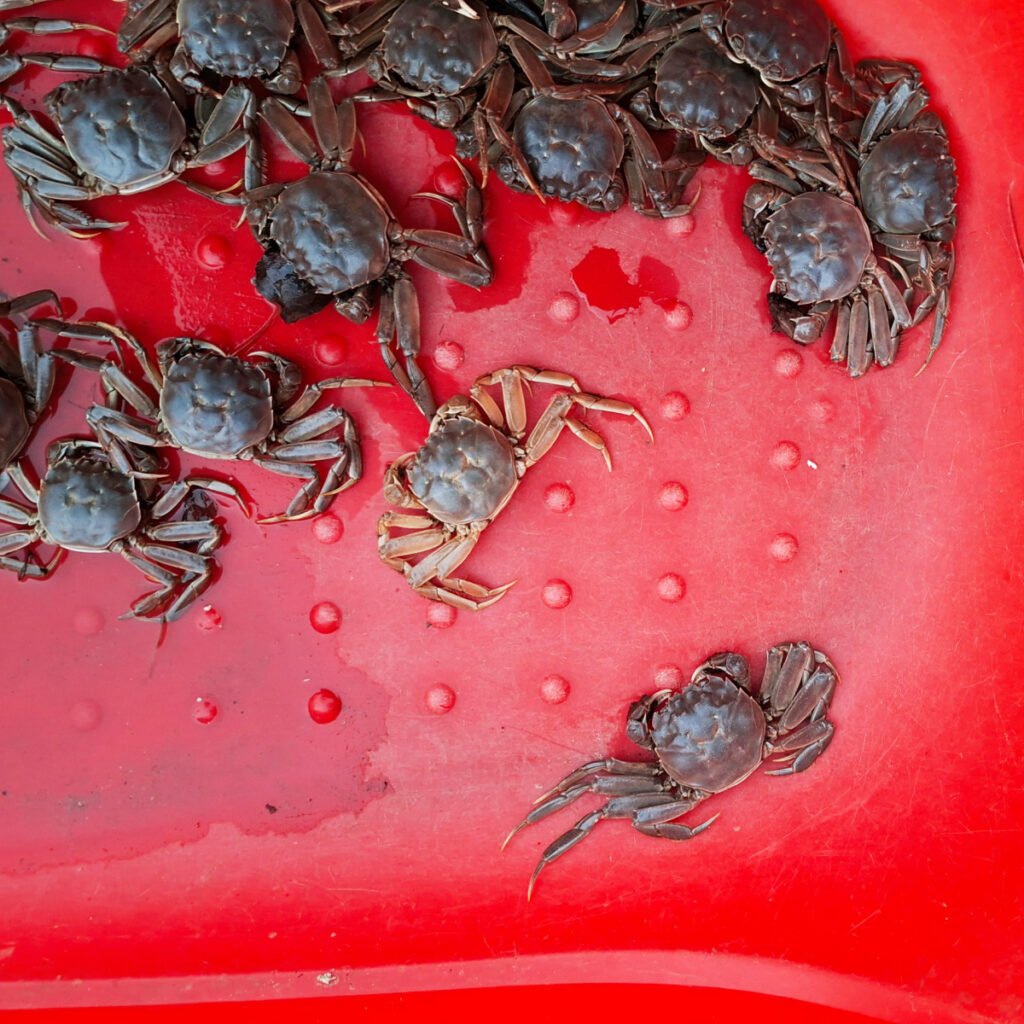
People tend to buy certain vegetables in bulk in the fall and store them by the roadside, as they often don’t have enough space at home. You can see plenty of Chinese cabbage and huge spring onions lying along the streets, where the cold air acts like a natural refrigerator. Chinese cabbage is usually turned into sauerkraut, which is commonly eaten with pork during the winter, often served alongside freshly cooked Northeastern Chinese rice.
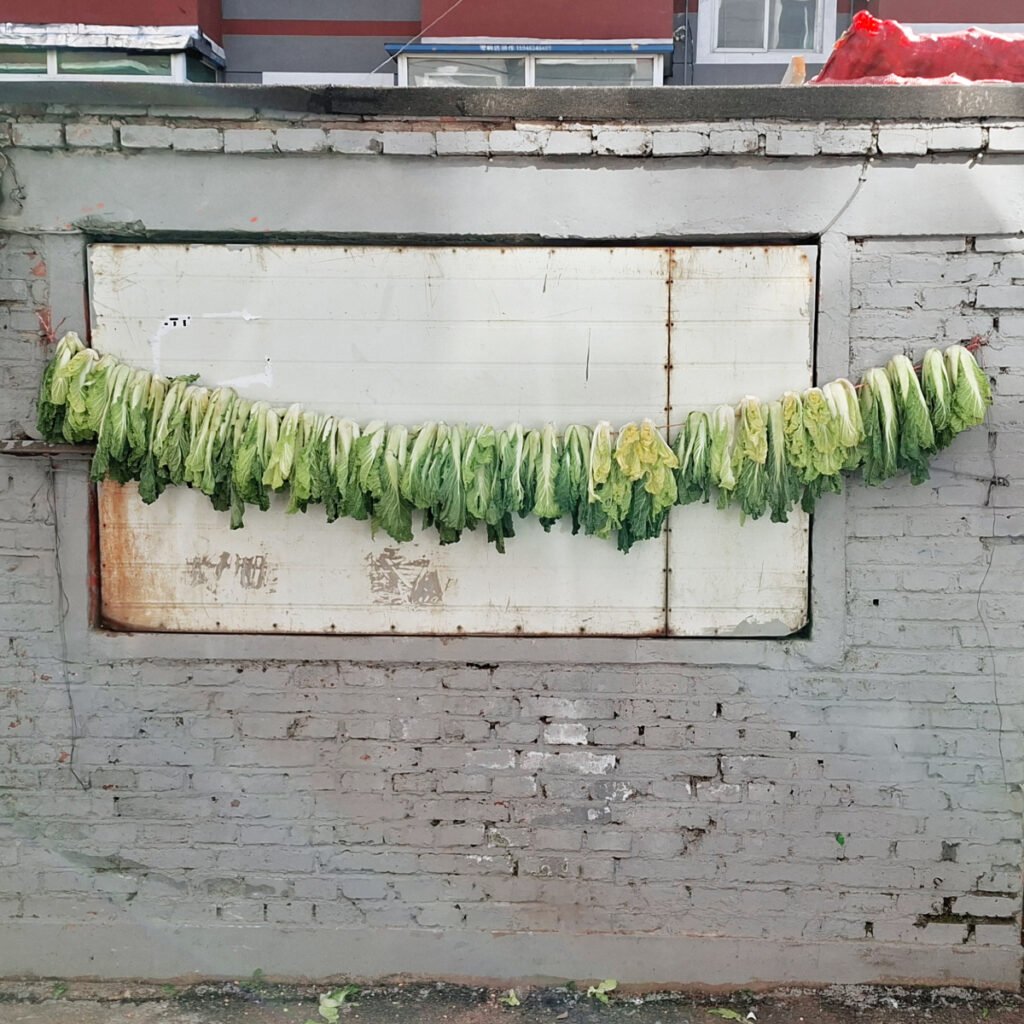
I’m not sure whether people simply eat the spring onions fresh or use them in specific dishes—I don’t know any dish that uses large quantities of spring onions at once. Other vegetables, however, are often fermented, which allows them to last through the winter and makes them easy to store once the fermentation process is complete.
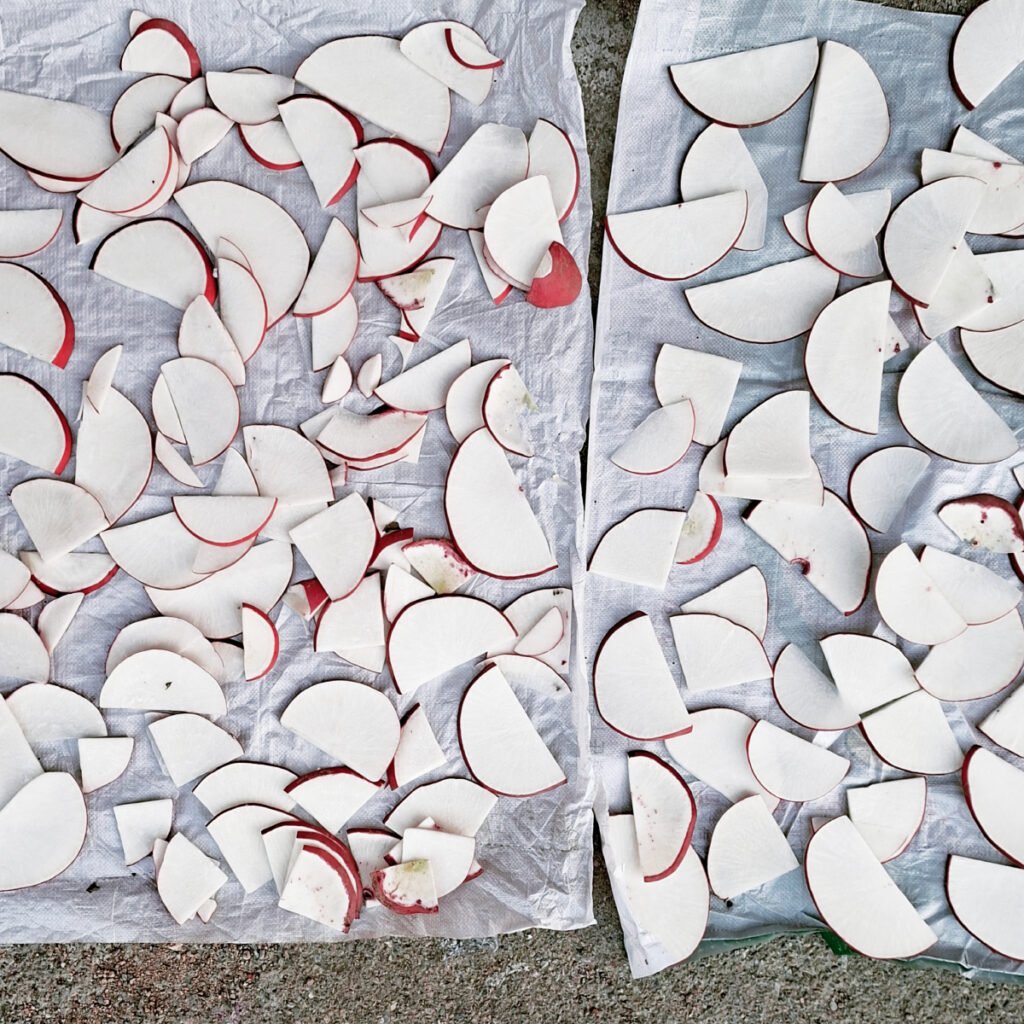
These piles of vegetables along the streets make for an interesting sight, as this practice is uncommon in Austria.
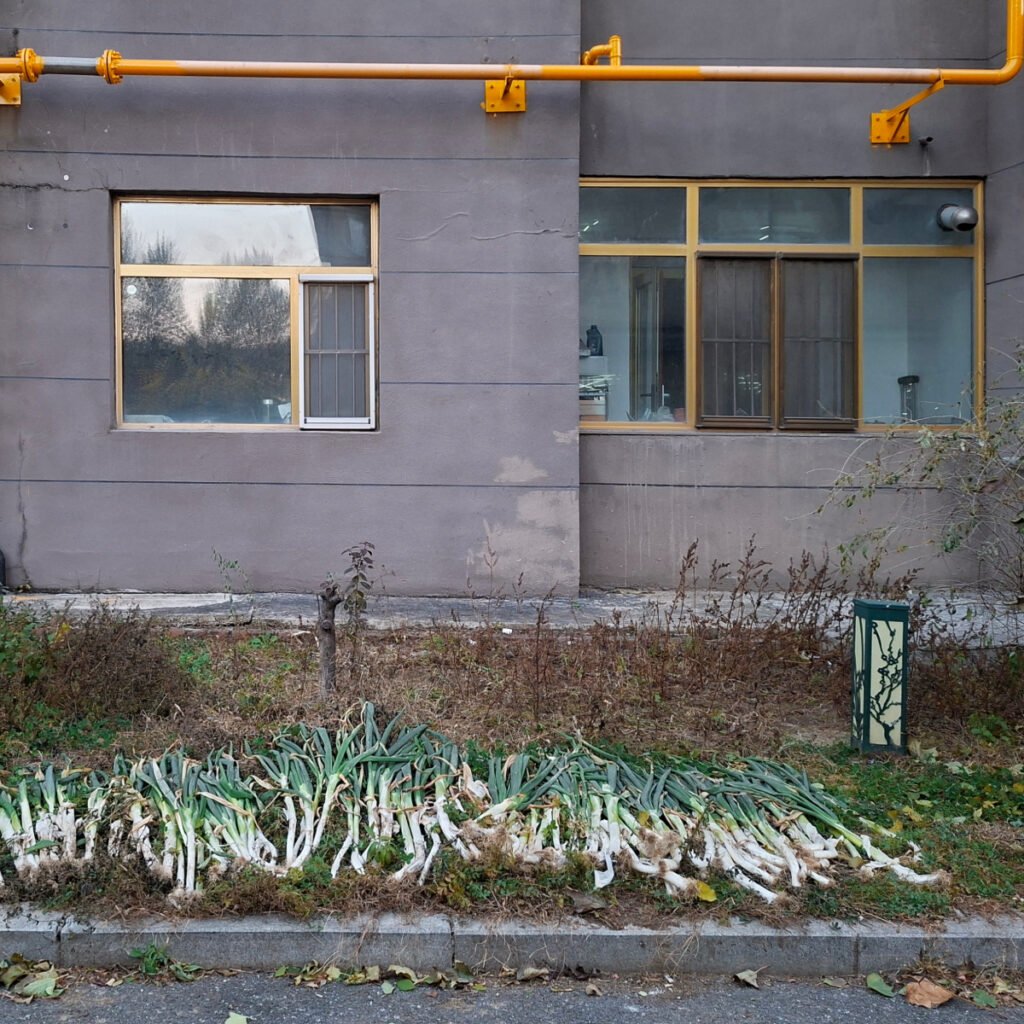
I also enjoy visiting the market near my home, which offers a lot of truly fresh, delicious vegetables during the warmer months. In winter, however, the variety decreases, and it’s often better to buy vegetables at supermarkets, where the produce is imported from other regions across China.
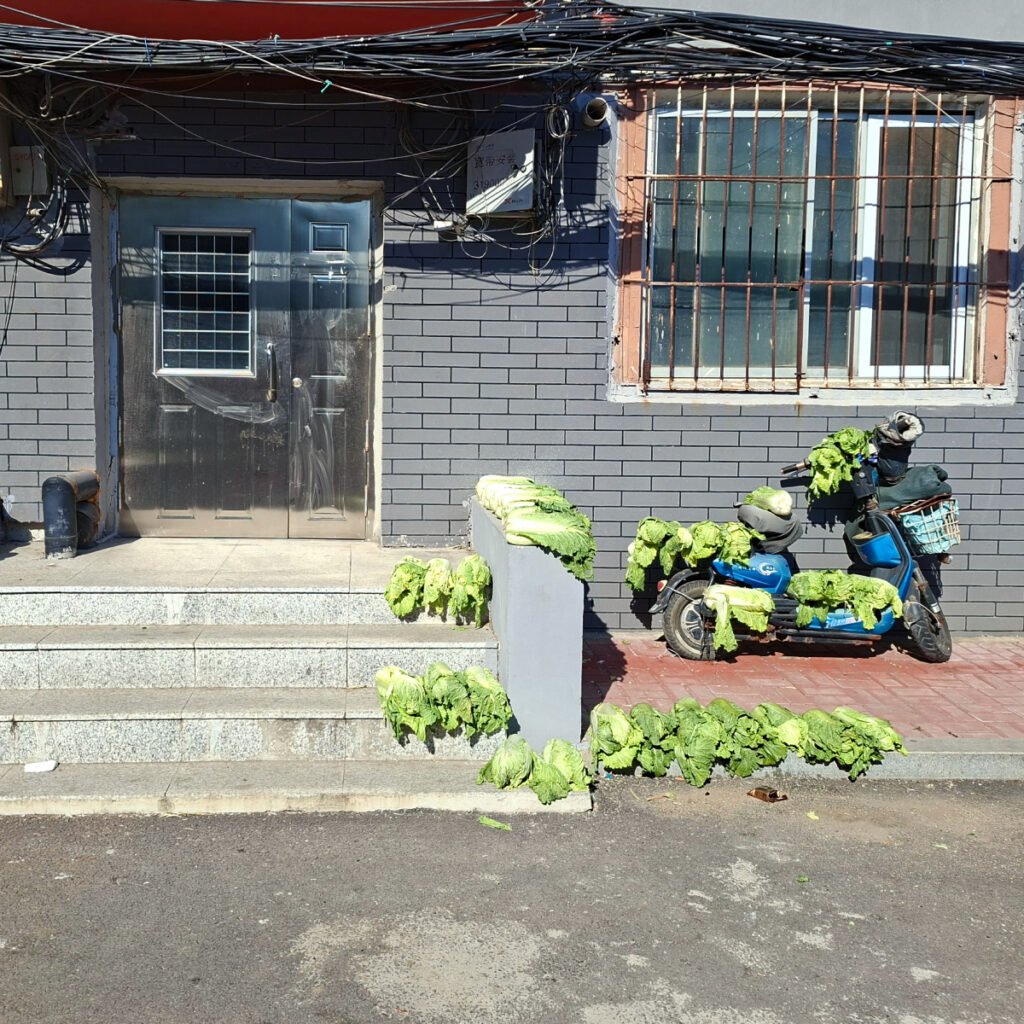
Supermarkets also vary in quality. In my experience, if you live in a smaller town (by Chinese standards), you can find everything from acceptable-quality vegetables to ones so poor that anyone with a sensitive stomach should probably avoid them to reduce the risk of parasites or other issues.
Have you ever visited markets in China?